Since I didn’t have the opportunity to attend last Friday’s hearing, I just want to touch base on a couple of things regarding that day.
I am glad Kathi Belich won. Freedom of the press in this country is protected by the First Amendment of the U.S. Constitution. If Kathi or any other journalist investigates a story, only defamation and the infringement of copyright laws should be subject to restrictions.
When Jose Baez and Jeff Ashton shook hands and the contempt motion flew out the window, I’d bet my bottom dollar that Judge Perry had told both sides that if they didn’t come to an agreement on their own, neither side would like the way he would handle it. That’s enough motivation right there. Not only does a judge dislike dealing with motions of this nature, he’s not in the courtroom to babysit. Crack the whip, git ‘er done. He did.
§
On Monday, I attended a hearing designed to give the defense and prosecution one final shot at summarizing the two motions discussed last Wednesday and Thursday regarding statements Casey gave law enforcement back in mid-July of 2008, and the statements she gave her parents and brother while she was sitting in jail. Were they unwitting agents of the state? If the judge agrees with the defense, it will be a damaging, but far from fatal blow, to the State of Florida. If the judge sides with the State, it will be business as usual - on with the show!
One of the things we must keep in mind is that if evidence is tossed, there’s still plenty more the State will use against her. For instance, Casey’s car is not in her name. The owner gave permission to have it examined. That’s a nice chunk of evidence. Caylee’s remains changed the playing field, too. When she was charged with first-degree murder on 14 October 2008, there was no death penalty. That came the following April, and of utmost importance was that her little bones and what surrounded them gave plenty of credibility to the old saying, “she’s speaking from the grave.”
While sitting in the courtroom, I must say Cheney Mason impressed me. His voice was stronger than it usually is. During one of the detective’s testimony last week, he asked if he was familiar with the term unarrested. The detective responded positively. Yesterday, Mason exclaimed that there is no such thing as being unarrested. He went on to scrutinize the tactics of the deputies and detectives from the first hours they spent with Casey to the final moments they pressed the Anthony family into service to visit her in jail. Agents of the State? Please.
When Casey was driven to Universal, he asserted that the detectives were already aware that she wasn’t employed there. They had set the meeting up with the chief of security, where a small room was awaiting her forquestioning. The door was closed, he said, and the intimidating tactics began. Voices were raised. Was she free to go, he wondered. No, of course not. She was at their mercy. No car and no one telling her she had a right to leave. The only way it could have been a voluntary interrogation would have been if she drove herself to meet them there.
He said it would have been impossible for trained law enforcement personnel to not treat her as some sort of suspect once they took a whiff of her car that first night. Where the defense had been weak in citing case law, Mason let loose here with the case of Ross v. State of Florida and the Florida Supreme Court’s ruling upon appeal:
After carefully reviewing the issues raised on appeal, we reverse the convictions and sentences of death because of the police conduct in interrogating Ross on January 9, 2004. Specifically, the police, over a period of several hours of custodial interrogation, deliberately delayed administration of the warnings required by Miranda v. Arizona, 384 U.S. 436 (1966), obtained inculpatory admissions, and when the warnings were finally administered midstream, minimized and downplayed the significance of the warnings and continued the prior interrogation—all of which undermined the effectiveness of Miranda.
In Ross’s case, the court wrote that investigators mishandled his interrogation days after his parents were beaten to death with a baseball bat more than seven years ago. On 7 January 2004, Ross, then 21, called 911 to report that someone had murdered his parents. No weapon was ever found. The Supreme Court ruling described a pressure-packed investigation two days later in which a detective questioned Ross for hours without reading him his Miranda rights. The high court ruling states the detective deliberately delayed reading Ross his rights in an effort to obtain a confession, while assuring him that he was not under arrest, amounting to an involuntary confession. Specifically, law enforcement, over a period of several hours of custodial interrogation, deliberately delayed administration of the Miranda warning. According to the ruling, when Miranda warnings were administered “midstream,” detectives…
… minimized and downplayed the significance of the warnings and continued the prior interrogation — all of which undermined the effectiveness of Miranda.
There is another case in Florida that is a real puzzler. In Ramirez v. State, 1999 WL 506949, the Florida Supreme Court reviewed Nathan Ramirez’s conviction and death sentence for his role in the execution-style murder of Mildred Boroski, a 71-year-old widow. He and another man broke into her home, killed her dog, tied her to a bed and raped her. Then, they forced her into a car, dead dog and all, and drove her to a remote field where Ramirez shot her twice in the head.
Investigators with the police department discovered some of the woman’s possessions in Ramirez’s custody and asked him to go to the station for a taped interview. He agreed. The investigators began the interview without a Miranda warning because they thought he was only a witness rather than a murder suspect. Within a few minutes, he began to sing like a canary and one of the investigators stopped the interview to suggest he be Mirandized. The colleague immediately read Ramirez his rights which the (now) suspect acknowledged and waived. He proceeded to detail what transpired that day.
Sadly, the Florida Supreme Court reversed Ramirez’s conviction and sentence despite how careful and diligent the investigators were. Why? Four of the justices claimed that his Miranda warning was given in a manner that unconstitutionally minimized and downplayed the importance of his rights. They exploited his pre-Miranda admission about being in the house.
That’s bad enough, but back to the matter at hand. The most startling revelation made by Mason was his assertion that the first time Casey was Mirandized was not until 14 October 2008, when she was indicted on first-degree murder and other charges. I beg to differ with him. According to Casey’s ICJIS (fraud) Arrest Affidavit, she was read her Miranda warning by OCSO Detective Johan Anderson on 29 August 2008 at 2135 hours, or 9:35 pm:
I responded to 4937 Hopespring Drive and made contact with defendant Anthony. She was placed under arrest and transported to the Orange County Sheriff’s Office. I read defendant Anthony her Miranda Rights and she advised that she did not want to speak to me without her lawyer. I terminated my interview and she was transported to BRC without incident.
Whether she was read her rights prior to this date is not readily available, but the above log refers to the fraud charges only. In any event, technically, she was read her Miranda Rights prior to 14 October. Was she advised of her rights before this exchange occurred on 16 July 2008?¹
“What happened to Caylee,” an investigator asks on the tape.
“I don’t know,” Casey Anthony said.
“Sure you do,” and investigator said.
“I don’t know,” Anthony said.
“Listen, something happened to Caylee,” an investigator said. “We’re not going to discuss where the last time you saw her (was). I’m guessing something bad happened to her some time ago and you haven’t seen her, so that part is true — is you haven’t seen her because she’s somewhere else right now.”
“She’s with someone else right now,” Anthony said.
“She’s either in a Dumpster right now, she’s buried somewhere, she’s out there somewhere and her rotten body is starting to decompose because what you’re telling us…,” an investigator said. “Here’s the problem. The longer this goes, the worse it’s going to be for everyone. Right now, everything you’ve told us — we’ve locked you into a lie. Every single thing that you’ve told us has been a lie.”
If she wasn’t read her rights before being interrogated, this could be a real problem because, clearly, she was the only suspect that law enforcement had as evidenced by their line of questioning. They were already on to her tricks.
On the other hand…
When Linda Drane Burdick approached the podium, she calmly stated that at no time was Casey in custody - there was no custodial interrogation. When at Universal Studios, Cpl. Yuri Melich wrote in his arrest affidavit, interestingly dated July 15:
At this time, we found a small conference room in which to talk to the defendant. This conversation was also recorded. Prior to beginning this interview, we stressed that the door was unlocked and were in the room for privacy only. She understood and agreed to speak with us on tape.
At no point in the arrest affidavit was it written that Casey was read her Miranda Rights. If there was ever a time for a sinking feeling, it may have come in the courtroom on Monday if she was not read her rights. There’s something else. Cpl. Yuri Melich made this notation in his affidavit:
I first met with the defendant inside her residence and spoke with her alone and away from other family members. Before asking for a recorded statement, I reviewed her original four page written sworn statement and asked if this was her version of what happened. She said it was. I told her that the incident was very suspicious and her version suspect.
Later that day, several of Casey’s friends and boyfriends called OCSO to report what they knew. It was a shock to everyone that darling Caylee was missing. Melich continues:
Once at our central operations center, and after I started receiving the above phone calls reference the defendant and her child, the defendant was given one more opportunity to change her story. She did not. She was then placed under arrest for child neglect, and providing false information to us regarding this investigation.
The official charges were:
- Neglect of a child 827.03 (3)(C)
- False Official Statements 837.06
- Obstruct Criminal Investigation 837.055
However…
At no time did Casey express an interest in remaining silent. Initially, as Linda Drane Burdick was quick to assert, Casey was not a suspect in the disappearance of her child when she was briefly cuffed and held in the back seat “cage” of Dep. Acevedo’s patrol car. She was never suppressed inside her house, nor was she ever held without her permission. Of course, common sense tells you when an officer of the law carries on a conversation and/or asks you to do something, you’d better comply, so there are gray areas defense teams are trained to exploit. Rightfully, Burdick contended that law enforcement merely treated Casey as a possible witness to some sort of kidnapping and there was no reason to Mirandize her.
I think before we continue, it’s important to clarify the written statement made by Casey. It came before she was handcuffed and placed in the police car.
Here comes the judge…
While Mason was arguing his case, Judge Perry broke in and asked him if he was familiar with Parks v. State (1994). Mason said no, and the judge advised him to read it. Now, if you want my opinion, when a judge suggests something to read, you’re darned-tootin’ I’m going to read it! The mere fact that a judge mentions case law is ominously significant, so here is where I think the judge will go with his decision regarding Miranda…
In the case of Darryl Parks v. State, in the District Court of Appeal of Florida, Fourth District, the appellant appealed his convictions for first-degree murder and three counts of armed robbery. He asserted four issues on appeal:
- whether appellant’s motion to suppress his confession should have been granted;
- whether the trial court erroneously allowed an accomplice’s prior consistent statement into evidence;
- whether the trial court erred in granting appellee’s peremptory challenge of a minority juror; and
- whether prosecutorial statements in closing arguments amounted to a comment on appellant’s exercise of his right to remain silent.
The appeals court affirmed as to all issues. However, their affirmance of issues one and two did warrant discussion. The following is quoted directly from the ruling. I will highlight key points:
On January 16, 1991, an individual wearing a mask entered a business in Broward County, began waiving a gun, and demanded money. The gunman was joined shortly thereafter by a second individual. During the course of the robbery, the owner of the business was fatally shot.
Five days after the shooting, appellant was arrested on an unrelated robbery charge. He was brought to the Broward County Sheriff’s Department homicide office for questioning concerning the murder. He was handcuffed and shackled. However, doubts arose concerning whether there was sufficient probable cause for appellant’s arrest. It was decided that appellant would be released. Appellant was advised he was free to go, the handcuffs and shackles were removed, and he was offered a ride home. Thereafter, but prior to leaving, appellant was asked whether he would remain and talk about the shooting. Appellant said he would talk to the officers about it. After appellant was informed of his Miranda rights, he was questioned by detectives. During this questioning, appellant made incriminating statements concerning his involvement in the murder and robberies. Appellant said he was present and he only intended to rob the place. However, he admitted using a substandard quality gun and “it just went off.”
The evidence shows appellant freely and voluntarily gave his statement to police. Even if the police lacked probable cause for the arrest on the unrelated charge, the fact appellant was released from custody and voluntarily remained to answer questions breaks the causal link between the arrest and his making of the incriminating statements to police. Appellant’s agreement to discuss the crime when he was free to decline and go home was an act of free will sufficient to purge any possible taint from the arrest. We find the trial court properly denied the motion to suppress appellant’s incriminating statements.
Parks asserted that the trial court improperly allowed a prior statement by his accomplice into evidence to help build the case against him. The day after he was arrested for the murder, Terrance Batten was brought to the police station for questioning. After being informed of his Miranda Rights. He then gave a tape recorded statement to police which implicated himself and Parks in the murder. About 22 months later, Batten received a plea deal from the state.
At trial, Batten testified about the shooting and robberies. He said appellant shot the victim. On direct examination, Batten acknowledged he gave a statement to police shortly after the shooting. During cross-examination by defense counsel, Batten was extensively questioned about his plea deal with the state. The details of the deal were spelled out for the jury. Batten was also questioned about the circumstances surrounding his prior statement made to police. Batten acknowledged the detectives told him that they did not want him, but wanted appellant. Batten also acknowledged he was told if he did not cooperate, he would be charged with murder and sentenced to the electric chair. He admitted he was thinking if he gave a statement to the detectives he could go home, but if he did not give them a statement he was going to be held on the murder charge.
Defense counsel also questioned Batten about specific contents of his prior statement. Batten was asked about his comments concerning who he was with prior to the robbery. Defense counsel noted that Batten said in his statement to police he was cooperating because the victim was shot. Also, Batten acknowledged there is no mention of a mask in his prior statement.
During the testimony of one of the detectives who questioned Batten, the tape-recorded statement was admitted into evidence over defense objection. Defense counsel had argued the prior consistent statement itself was made after Batten had an improper motive. Therefore, it was inadmissible.
Here’s the clincher, though:
We agree with appellant that the prior consistent statement should not have been admitted into evidence. Generally, prior consistent statements are not admissible to corroborate a witness’ testimony. Jackson v. State, 498 So.2d 906 (Fla. 1986). An exception to the rule provides that such statements are admissible to rebut charges of improper influence, motive or recent fabrication against the witness. Id. at 910; see also § 90.801(2)(b), Fla. Stat. (1991). However, the prior consistent statement must be made “prior to the existence of a fact said to indicate bias, interest, corruption, or other motive to falsify.” Dawson v. State, 585 So.2d 443, 445 (Fla. 4th DCA 1991).
We hold, however, that the erroneous admission of Batten’s tape recorded statement was harmless. The jury was aware of the existence of the prior statement. A reasonable jury could presume the prior statement was consistent with Batten’s in-court testimony. Further, defense counsel delved into some of the specifics of the statement, referring to actual comments made by Batten to police. Thus, portions of the statement were highlighted for the jury, by defense counsel, prior to the admission of the statement in its entirety.
These factors, in combination with appellant’s incriminating statements and testimony linking appellant to an item stolen in the robbery, convince us of the harmless nature of the trial court’s error. See State v. DiGuilio, 491 So.2d 1129 (Fla. 1986). We therefore affirm appellant’s convictions on all counts.
AFFIRMED.
What does this tell me? Well, when Mason mentioned October 14 - and he did so twice - and the State did not counter, it sent a message. Two times and the prosecution came back with no response. I think the judge is going to allow Casey’s early statements to stand until a clearly defined moment surfaces that distinguishes her standing with the police. I believe that once Casey was asked to go to Universal with the detectives, or earlier, when Cpl. Melich told her of his suspicions, she should have been Mirandized. Therefore, from the wee hours of 16 July 2008 until she was finally read her rights, whatever she said could be tossed. What, you say? There’s no real need to worry. Consider this: After Casey lawyered up, what did she say? Nothing, really. Honestly, most of the really incriminating evidence came after Caylee was found in the woods, but other things like the “smells like a dead body in the damn car” evidence cannot be suppressed, nor can all of the statements made by her friends and lovers, especially Anthony Lazzaro. Linda Drane Burdick did a convincing job of keeping Casey a victim before the truth began to seep through her lies. At what point did the line cross from victim to suspect? That’s the key. Personally, I think custodial interrogation began when she told Orange County Sheriff’s Sgt. Reginald Hosey that her mother had blown the whole thing out of proportion. Huh? Your child is missing for a month and your mother is overreacting? On the stand last week, Hosey said the actions of his officers were guided by George and Cindy’s concerns over Casey’s very erratic behavior and the missing toddler. That would have done it for me. And that God-awful smell.
 Saturday, April 9, 2011 at 10:01PM
Saturday, April 9, 2011 at 10:01PM 
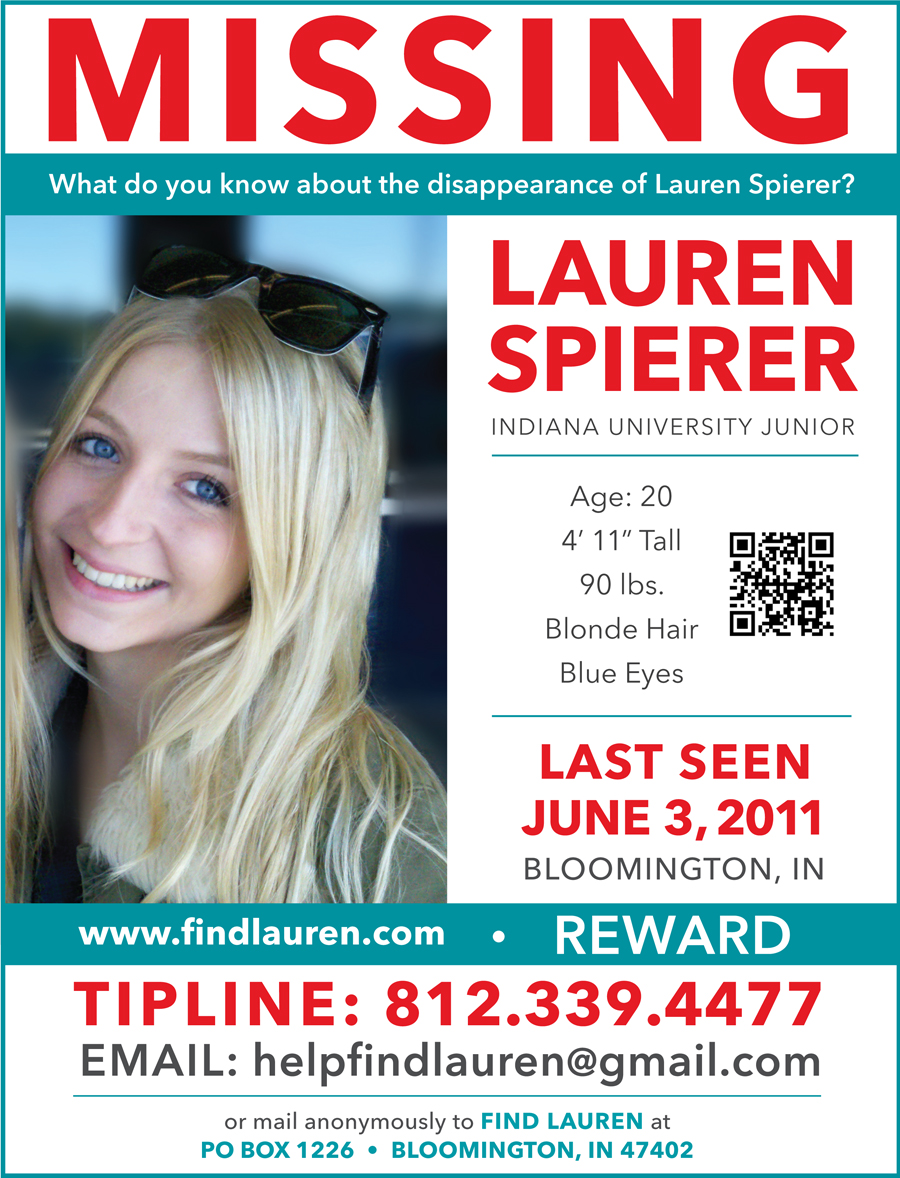
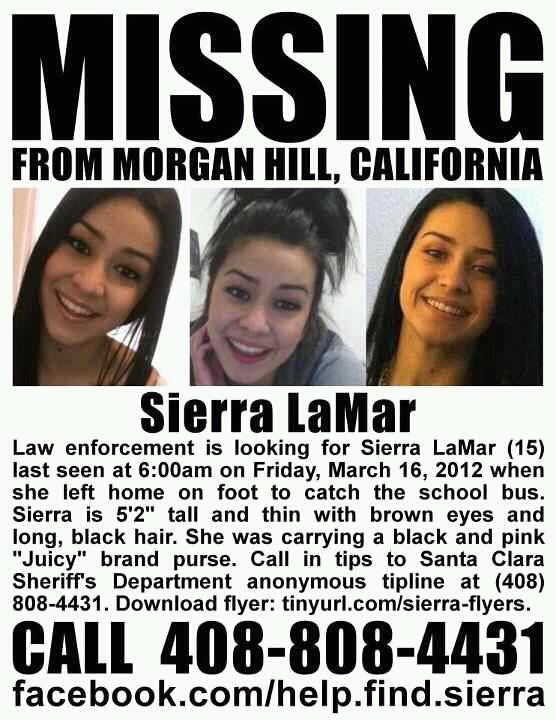
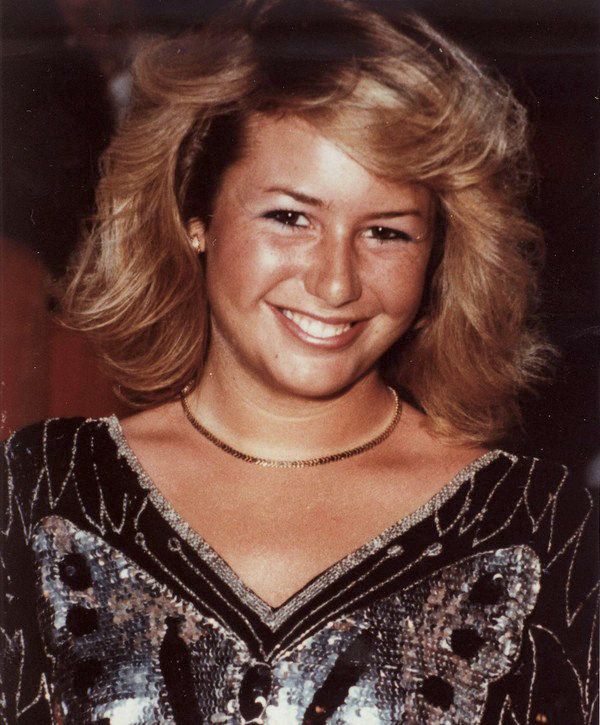

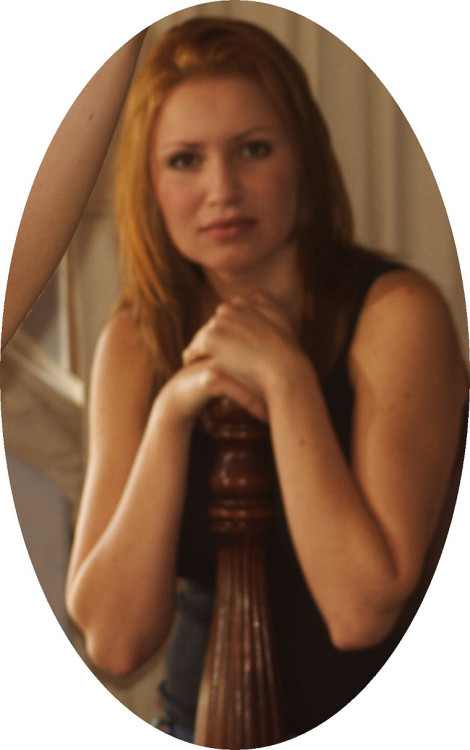
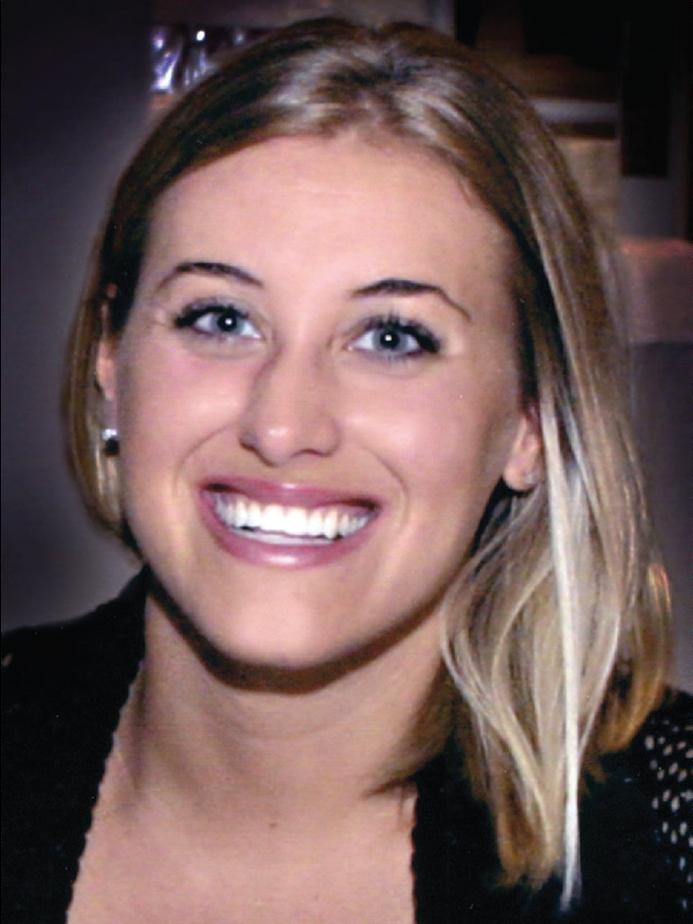






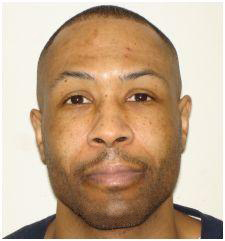
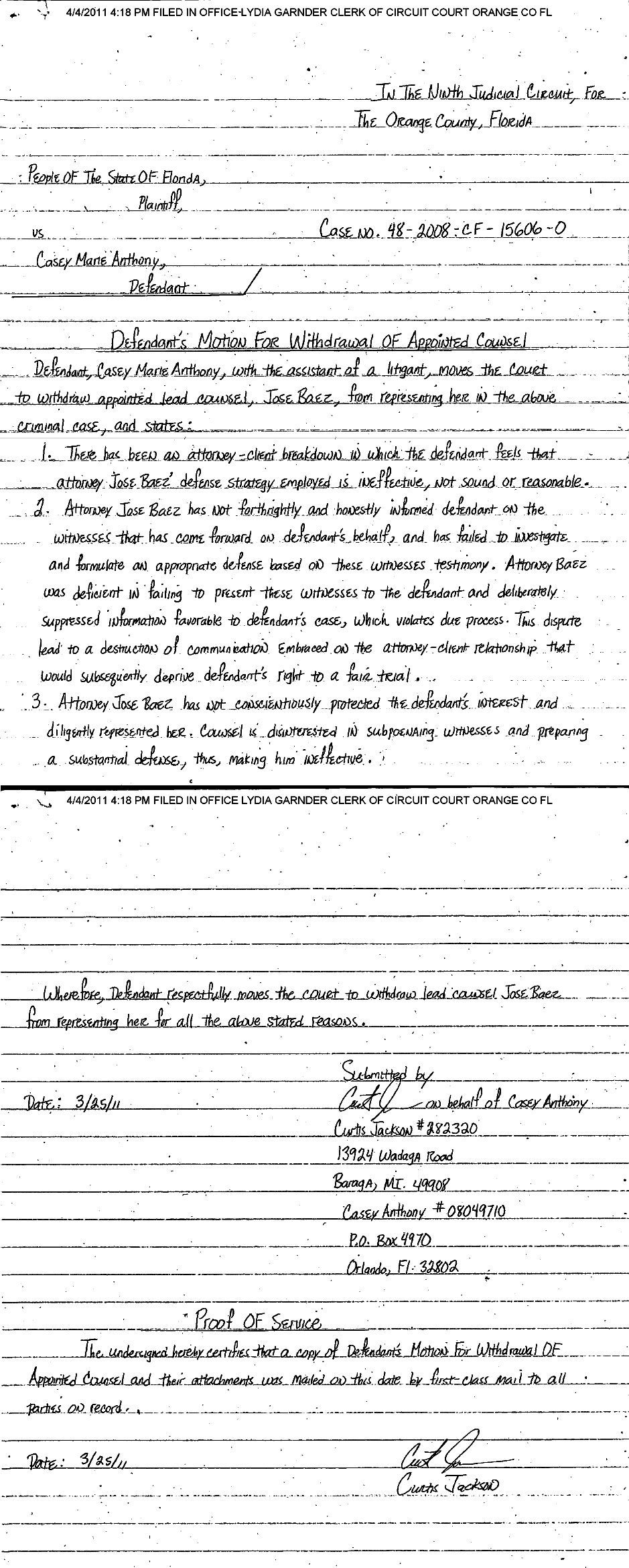

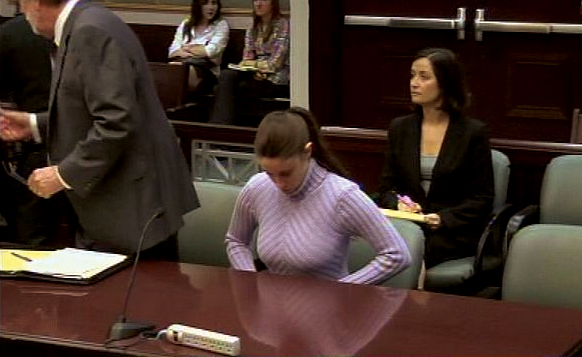



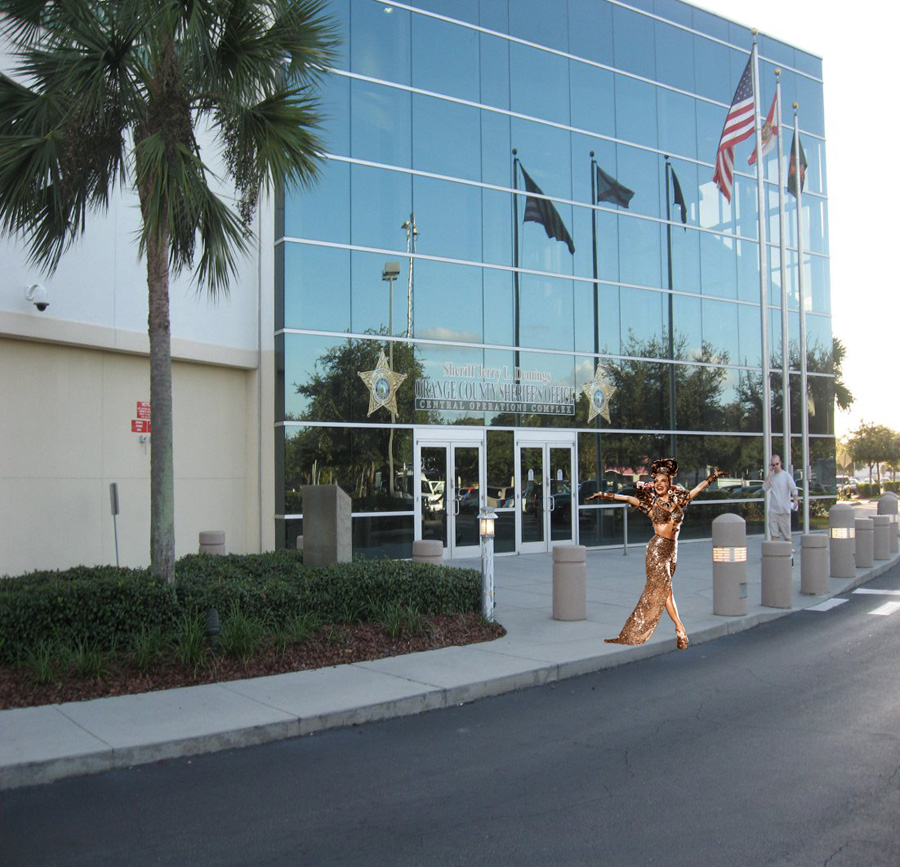
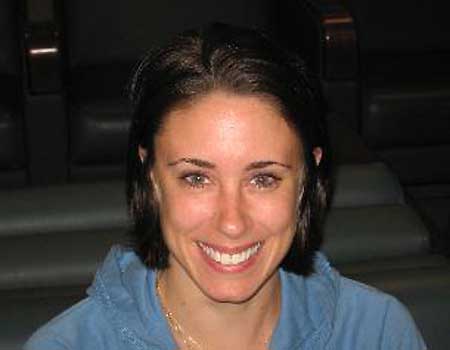
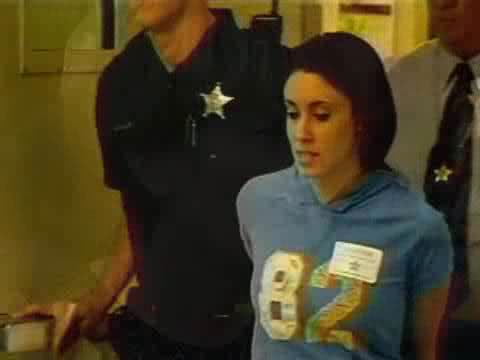
 LEGAL NOTICE
©David B. Knechel. All Rights Reserved. No portion of this site can be reproduced in it's entirety or in part without expressed written permission by the owner/administrator of this site in accordance with the Digital Millennium Copyright Act. Section 512(c)(3) of the U.S. Copyright Act, 17 U.S.C. §512(c)(3). The charges against defendants are mere accusations and the subjects are presumed innocent until found guilty in a court of law.
LEGAL NOTICE
©David B. Knechel. All Rights Reserved. No portion of this site can be reproduced in it's entirety or in part without expressed written permission by the owner/administrator of this site in accordance with the Digital Millennium Copyright Act. Section 512(c)(3) of the U.S. Copyright Act, 17 U.S.C. §512(c)(3). The charges against defendants are mere accusations and the subjects are presumed innocent until found guilty in a court of law.